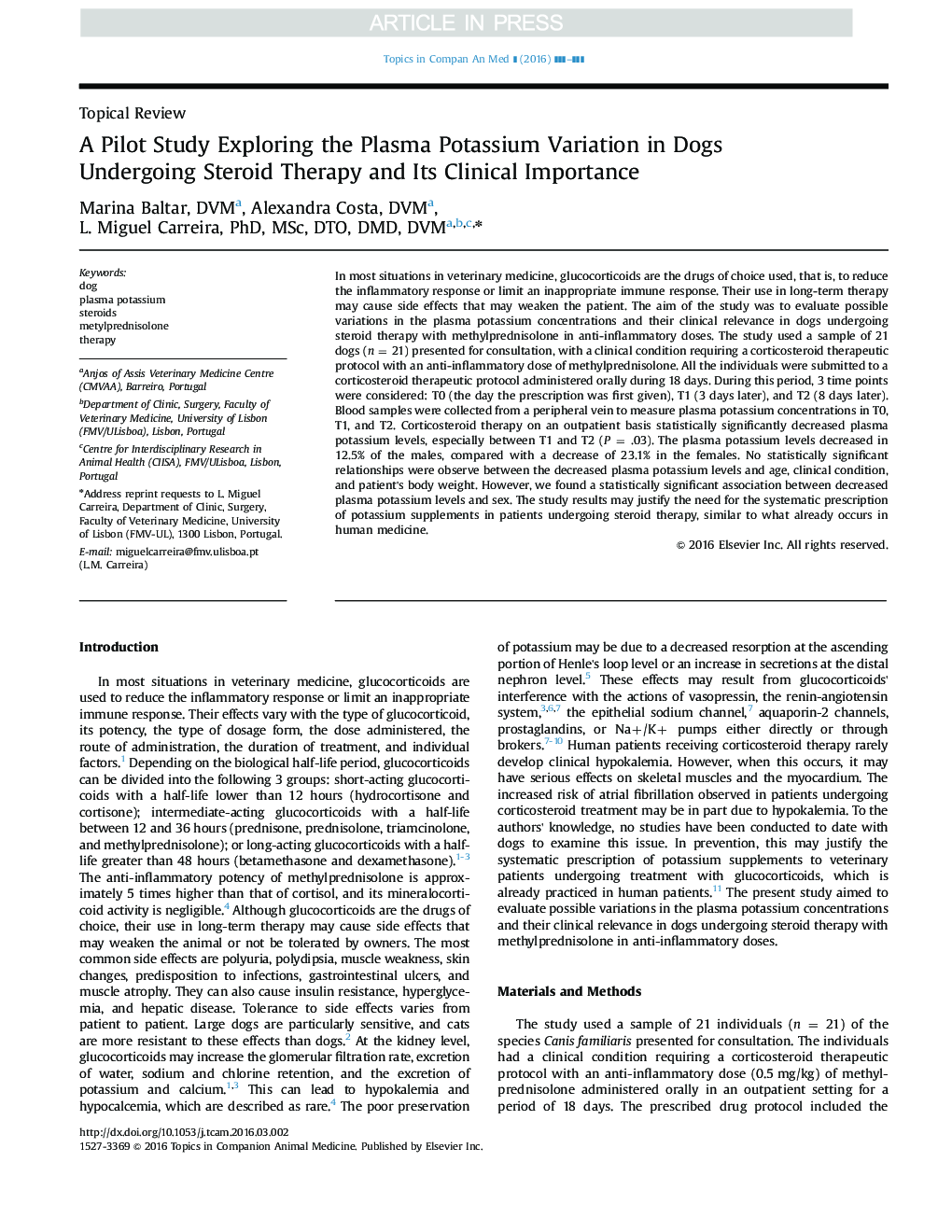| Article ID | Journal | Published Year | Pages | File Type |
|---|---|---|---|---|
| 5536130 | Topics in Companion Animal Medicine | 2016 | 5 Pages |
Abstract
In most situations in veterinary medicine, glucocorticoids are the drugs of choice used, that is, to reduce the inflammatory response or limit an inappropriate immune response. Their use in long-term therapy may cause side effects that may weaken the patient. The aim of the study was to evaluate possible variations in the plasma potassium concentrations and their clinical relevance in dogs undergoing steroid therapy with methylprednisolone in anti-inflammatory doses. The study used a sample of 21 dogs (n = 21) presented for consultation, with a clinical condition requiring a corticosteroid therapeutic protocol with an anti-inflammatory dose of methylprednisolone. All the individuals were submitted to a corticosteroid therapeutic protocol administered orally during 18 days. During this period, 3 time points were considered: T0 (the day the prescription was first given), T1 (3 days later), and T2 (8 days later). Blood samples were collected from a peripheral vein to measure plasma potassium concentrations in T0, T1, and T2. Corticosteroid therapy on an outpatient basis statistically significantly decreased plasma potassium levels, especially between T1 and T2 (P = .03). The plasma potassium levels decreased in 12.5% of the males, compared with a decrease of 23.1% in the females. No statistically significant relationships were observe between the decreased plasma potassium levels and age, clinical condition, and patient׳s body weight. However, we found a statistically significant association between decreased plasma potassium levels and sex. The study results may justify the need for the systematic prescription of potassium supplements in patients undergoing steroid therapy, similar to what already occurs in human medicine.
Keywords
Related Topics
Life Sciences
Agricultural and Biological Sciences
Animal Science and Zoology
Authors
Marina DVM, Alexandra DVM, L. Miguel PhD, MSc, DTO, DMD, DVM,
